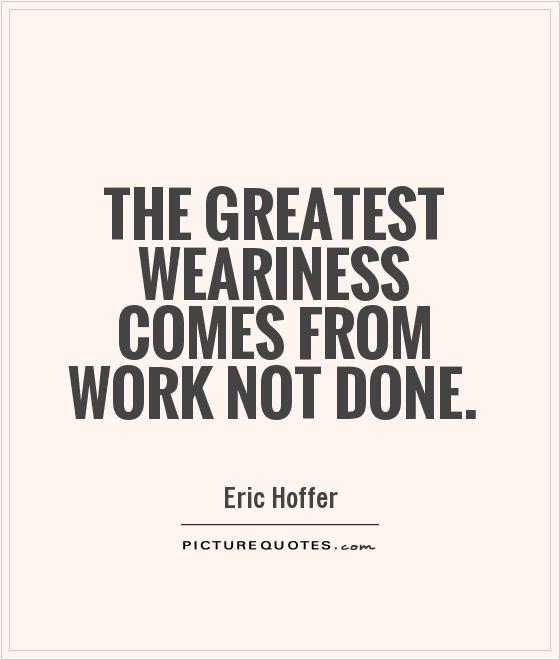The greatest weariness comes from work not done

The greatest weariness comes from work not done
Eric Hoffer, a renowned American philosopher and author, once said, "The greatest weariness comes from work not done." This profound statement holds a significant meaning in our lives, as it highlights the consequences of procrastination and the importance of taking action in achieving our goals.Procrastination is a common habit that many people struggle with. It is easy to put off tasks that seem daunting or overwhelming, but the longer we delay them, the more they weigh on our minds. Hoffer's words remind us that the mental and emotional exhaustion we feel from avoiding work is often greater than the physical effort required to complete it. The longer we procrastinate, the more we build up anxiety and stress, leading to a sense of weariness that can be debilitating.
When we fail to take action and leave tasks unfinished, we miss out on the sense of accomplishment and satisfaction that comes from completing them. This can lead to feelings of regret and disappointment, as we realize that we have wasted valuable time and energy on avoiding the work that needed to be done. The weariness that comes from work not done is not just physical, but also emotional and psychological, as it can erode our self-esteem and confidence.
Hoffer's words also serve as a reminder of the importance of setting goals and priorities in our lives. By identifying what needs to be done and taking steps to accomplish it, we can avoid the weariness that comes from procrastination and inaction. When we are proactive and focused on our goals, we are more likely to experience a sense of purpose and fulfillment in our lives.












 Friendship Quotes
Friendship Quotes Love Quotes
Love Quotes Life Quotes
Life Quotes Funny Quotes
Funny Quotes Motivational Quotes
Motivational Quotes Inspirational Quotes
Inspirational Quotes